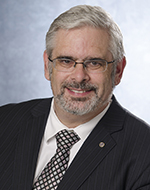Page Content
 Question: The United Conservative Party (UCP) platform proposes removing a cap on the number of charter schools and removing other regulatory restrictions. Why is the Association so opposed to measures that would enhance parents’ access to charter schools?
Question: The United Conservative Party (UCP) platform proposes removing a cap on the number of charter schools and removing other regulatory restrictions. Why is the Association so opposed to measures that would enhance parents’ access to charter schools?
Answer: The Association is opposed to expanding the number of charter schools and removing restrictions on their operation because without appropriate constraints, the charter school system could pose a serious threat to the integrity of public education
in Alberta.
Charter schools were supposed to expand the range of educational choice available to parents and students; however, most do not offer approaches that are not available or could not be made available as alternative education programs by public, separate or francophone school authorities. And while charter school operators and their supporters proudly claim that they are fully part of the public school system, these schools differ from their public, separate and francophone counterparts in several crucial respects: they are not governed by publicly elected boards, their teachers are precluded by statute from being active members of the Alberta Teachers’ Association, and they can select students based on compatibility with what is supposed to be their unique programming or pedagogical approaches. Nonetheless, these schools are eligible for the same provincial funding per student as any other public school.
| Without appropriate constraints, the charter school system could pose a serious threat to the integrity of public education in Alberta. |
Charter schools in Alberta are subject to restrictions. They are required to adhere to the provincial program of studies and employ certificated teachers. Charters are not allowed to be for-profit enterprises and may not be associated with a religious faith or denomination. As part of the application process, those wishing to establish a charter school are required to first approach their local school board and request that it establish an alternative program
similar to the proposed charter. Effectively, this gives public school boards right of first refusal. Finally, the total number of charter schools allowed in the province is currently capped at 15, although only 13 are operating (several with multiple campuses).
The UCP platform provides for the removal of the cap on the number of charter schools in addition to eliminating other (unspecified) restrictions. At the very least, this has the potential to dramatically expand the number of operating charter schools. It may even open up the possibility that private schools might re-establish themselves as fully funded charters, and that commercial providers might be free to operate charter schools for profit. We need only look to the American experience with unfettered charter schools to recognize the damage that implementation of such a policy could cause
public education.
In cities and states that have permitted the free establishment of charter schools, the result has been to increasingly privatize K–12 education and undermine the viability of traditional public schools. Teachers’ unions are being attacked and teachers’ security of employment, compensation and conditions of practice are being diminished. Most seriously, the net effect of the establishment of charter schools has been to disadvantage the poorest and most vulnerable student populations, contributing to the segregation of education as parents who have the means to place their children in charter schools abandon failing public schools to those who don’t.
I do not claim that this is the objective that the UCP wishes to achieve. The party, however, owes Albertans a clear and specific statement detailing how a UCP government would change the regulatory regime governing charter schools so that the implications for public education in Alberta can be fully understood and so that citizens can make an informed decision as they go to vote. ❚
Questions for consideration in this column are welcome. Please address them to Dennis Theobald at Barnett House (dennis.theobald@ata.ab.ca).
